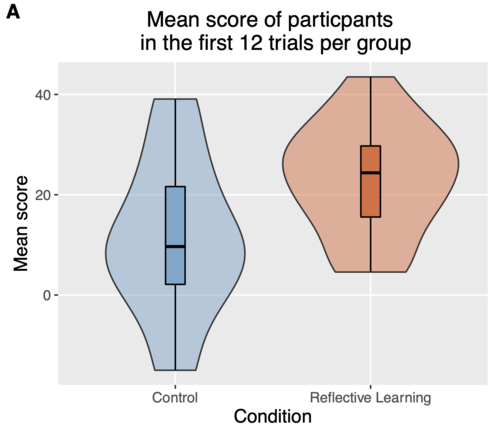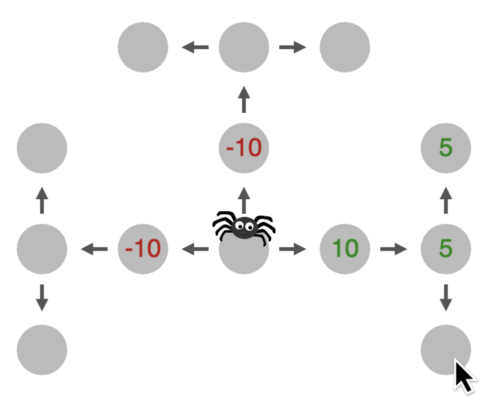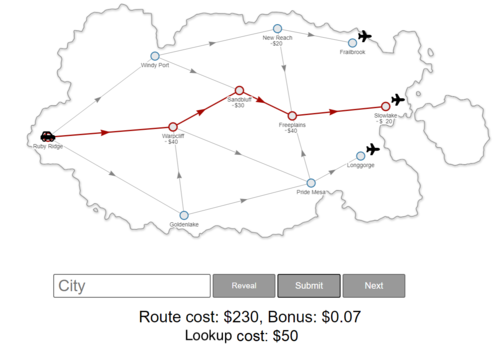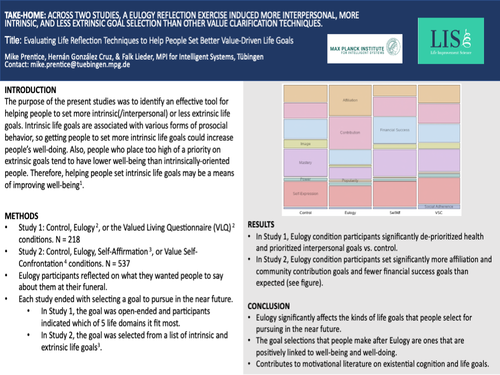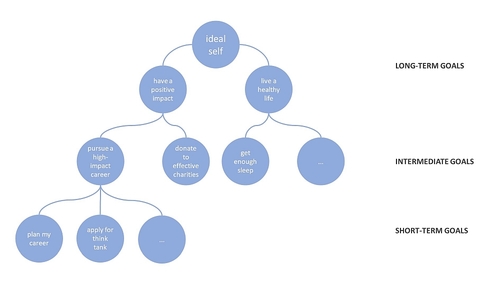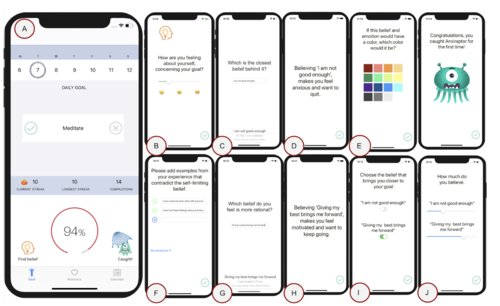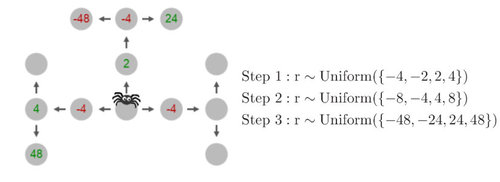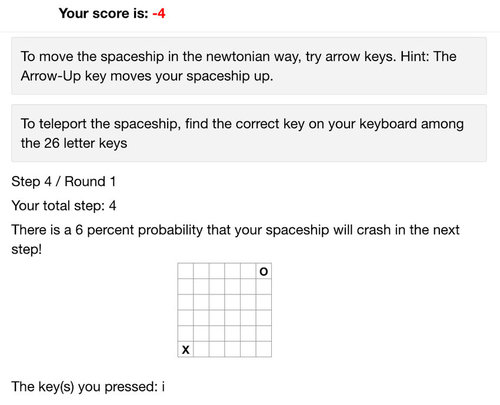2023
He, R., Lieder, F.
What are the mechanisms underlying metacognitive learning?
In July 2023 (inproceedings) Accepted
Singhi, N., Mohnert, F., Prystawski, B., Lieder, F.
Toward a normative theory of (self-)management by goal-setting
Proceedings of the Annual Meeting of the Cognitive Science Society, Annual Meeting of the Cognitive Science Society, July 2023 (conference) Accepted
Srinivas, S., He, R., Lieder, F.
Learning planning strategies without feedback
July 2023 (conference) Accepted
2022
Lieder, F.
Which research topics are most important for promoting flourishing?
In Global Conference on Human Flourishing, Templeton World Charity Foundation, November 2022 (inproceedings) Accepted
Lieder, F., Chen, P., Stojcheski, J., Consul, S., Pammer-Schindler, V.
A cautionary tale about AI-generated goal suggestions
In MuC ’22: Proceedings of Mensch und Computer 2022 , pages: 354-359, Mensch und Computer 2022 (MuC 2022) , September 2022 (inproceedings)
Consul, S., Stojcheski, J., Lieder, F.
Leveraging AI for effective to-do list gamification
In Mensch und Computer 2022 – Workshopband MuC 2022 , Mensch und Computer 2022 (MuC 2022) : 5th International Workshop "Gam-R – Gamification Reloaded" , September 2022 (inproceedings)
Jähnichen, S., Weber, F., Prentice, M., Lieder, F.
Does deliberate prospection help students set better goals?
In 15th Biannual Meeting of the German Cognitive Science Society , pages: 188-189 , 15th Biannual Meeting of the German Cognitive Science Society (KogWis 2022 – Understanding Minds) , September 2022 (inproceedings)
Amo, V., Prentice, M., Lieder, F.
Promoting value-congruent action by supporting effective metacognitive emotion-regulation strategies with a gamified app
Society for Personality and Social Psychology (SPSP) Annual Convention 2022, San Francisco, USA, Society for Personality and Social Psychology (SPSP) Annual Convention 2022, February 2022 (conference)
Prentice, M., Gonzalez Cruz, H., Lieder, F.
Evaluating Life Reflection Techniques to Help People Select Virtuous Life Goals
Integrating Research on Character and Virtues: 10 Years of Impact, Oriel College, Oxford, Integrating Research on Character and Virtues: 10 Years of Impact, January 2022 (conference) Accepted
2021
Becker, F., Lieder, F.
Promoting metacognitive learning through systematic reflection
Workshop on Metacognition in the Age of AI. Thirty-fifth Conference on Neural Information Processing Systems, 35th Conference on Neural Information Processing Systems (NeurIPS 2021), December 2021 (conference)
He, R., Jain, Y. R., Lieder, F.
Have I done enough planning or should I plan more?
Workshop on Metacognition in the Age of AI. Thirty-fifth Conference on Neural Information Processing Systems, Long Paper, Workshop on Metacognition in the Age of AI. Thirty-fifth Conference on Neural Information Processing Systems, December 2021 (conference) Accepted
Becker, F., Skirzynski, J. M., van Opheusden, B., Lieder, F.
Encouraging far-sightedness with automatically generated descriptions of optimal planning strategies: Potentials and Limitations
Proceedings of the 43rd Annual Meeting of the Cognitive Science Society, Online, Annual Meeting of the Cognitive Science Society, July 2021 (conference)
Teo, J., Pauly, R., Heindrich, L., Amo, V., Lieder, F.
Leveraging AI to support the self-directed learning of disadvantaged youth in developing countries
The first Life Improvement Science Conference, Tübingen, Germany, The first Life Improvement Science Conference, June 2021 (conference) Accepted
Prentice, M., González Cruz, H., Lieder, F.
Evaluating Life Reflection Techniques to Help People Set Better Value-Driven Life Goals
13th Annual Conference of the Society for the Science of Motivation, Society for the Science of Motivation, 13th Annual Conference of the Society for the Science of Motivation , May 2021 (conference)
González Cruz, H., Prentice, M., Lieder, F.
’What Do You Want in Life and How Can You Get There?’ An Evaluation of a Hierarchical Goal-Setting Chatbot
13th Annual meeting of the Society for the Science of Motivation, Abstract of presentation at the 13th SSM Virtual Congress, Society for the Science of Motivation, Virtual Congress, May 2021 (conference)
He, R., Jain, Y. R., Lieder, F.
Measuring and modelling how people learn how to plan and how people adapt their planning strategies the to structure of the environment
International Conference on Cognitive Modeling, International Conference on Cognitive Modeling, 2021 (conference)
2020
Amo, V., Lieder, F.
A Gamified App that Helps People Overcome Self-Limiting Beliefs by Promoting Metacognition
SIG 8 Meets SIG 16, SIG 8 Meets SIG 16, September 2020 (conference) Accepted
Wirzberger, M., Lado, A., Eckerstorfer, L., Oreshnikov, I., Passy, J., Stock, A., Shenhav, A., Lieder, F.
How to navigate everyday distractions: Leveraging optimal feedback to train attention control
Proceedings of the 42nd Annual Meeting of the Cognitive Science Society, Cognitive Science Society, July 2020 (conference)
Felso, V., Jain, Y. R., Lieder, F.
Measuring the Costs of Planning
Proceedings of the 42nd Annual Meeting of the Cognitive Science Society, (Editors: S. Denison and M. Mack and Y. Zu and B. C. Armstrong), Cognitive Science Society, CogSci 2020, July 2020 (conference) Accepted
Kemtur, A., Jain, Y. R., Mehta, A., Callaway, F., Consul, S., Stojcheski, J., Lieder, F.
Leveraging Machine Learning to Automatically Derive Robust Planning Strategies from Biased Models of the Environment
Proceedings of the 42nd Annual Meeting of the Cognitive Science Society, Cognitive Science Society, CogSci 2020, July 2020, Anirudha Kemtur and Yash Raj Jain contributed equally to this publication. (conference)
Wirzberger, M., Oreshnikov, I., Passy, J., Lado, A., Shenhav, A., Lieder, F.
ACTrain: Ein KI-basiertes Aufmerksamkeitstraining für die Wissensarbeit
66th Spring Conference of the German Ergonomics Society, 2020 (conference)
2019
Jain, Y. R., Gupta, S., Rakesh, V., Dayan, P., Callaway, F., Lieder, F.
How do people learn how to plan?
2019 Conference on Cognitive Computational Neuroscience, September 2019 (conference)
Mohnert, F., Tosic, M., Lieder, F.
Testing Computational Models of Goal Pursuit
2019 Conference on Cognitive Computational Neuroscience,, CCN2019, September 2019 (conference)
Jain, Y. R., Callaway, F., Lieder, F.
Measuring How People Learn How to Plan
In Proceedings 41st Annual Meeting of the Cognitive Science Society, pages: 1956-1962, CogSci2019, 41st Annual Meeting of the Cognitive Science Society, July 2019 (inproceedings)
Xu, L., Wirzberger, M., Lieder, F.
How should we incentivize learning? An optimal feedback mechanism for educational games and online courses
41st Annual Meeting of the Cognitive Science Society, July 2019 (conference)
Pothos, E. M., Busemeyer, J. R., Pleskac, T., Yearsley, J. M., Tenenbaum, J. B., Goodman, N. D., Tessler, M. H., Griffiths, T. L., Lieder, F., Hertwig, R., Pachur, T., Leuker, C., Shiffrin, R. M.
Extending Rationality
Proceedings of the 41st Annual Conference of the Cognitive Science Society, pages: 39-40, CogSci 2019, July 2019 (conference)
Mohnert, F., Pachur, T., Lieder, F.
What’s in the Adaptive Toolbox and How Do People Choose From It? Rational Models of Strategy Selection in Risky Choice
41st Annual Meeting of the Cognitive Science Society, July 2019 (conference)
Jain, Y. R., Callaway, F., Lieder, F.
Measuring How People Learn How to Plan
pages: 357-361, RLDM 2019, July 2019 (conference)
Lieder, F., Callaway, F., Jain, Y. R., Krueger, P. M., Das, P., Gul, S., Griffiths, T. L.
A Cognitive Tutor for Helping People Overcome Present Bias
RLDM 2019, July 2019, Falk Lieder and Frederick Callaway contributed equally to this publication. (conference)
lawama, G., Greenberg, S., Moore, D., Lieder, F.
Introducing the Decision Advisor: A simple online tool that helps people overcome cognitive biases and experience less regret in real-life decisions
40th Annual Meeting of the Society for Judgement and Decision Making, June 2019 (conference)
Iwama, G., Wirzberger, M., Lieder, F.
The Goal Characteristics (GC) questionannaire: A comprehensive measure for goals’ content, attainability, interestingness, and usefulness
40th Annual Meeting of the Society for Judgement and Decision Making, June 2019 (conference)
Das, P., Callaway, F., Griffiths, T. L., Lieder, F.
Remediating Cognitive Decline with Cognitive Tutors
RLDM 2019, 2019 (conference)
2018
Lieder, F., Callaway, F., Krueger, P. M., Das, P., Griffiths, T. L., Gul, S.
Discovering and Teaching Optimal Planning Strategies
In The 14th biannual conference of the German Society for Cognitive Science, GK, September 2018, Falk Lieder and Frederick Callaway contributed equally to this publication. (inproceedings)
Gul, S., Krueger, P. M., Callaway, F., Griffiths, T. L., Lieder, F.
Discovering Rational Heuristics for Risky Choice
The 14th biannual conference of the German Society for Cognitive Science, GK, The 14th biannual conference of the German Society for Cognitive Science, GK, September 2018 (conference)
Callaway, F., Gul, S., Krueger, P. M., Griffiths, T. L., Lieder, F.
Learning to Select Computations
In Uncertainty in Artificial Intelligence: Proceedings of the Thirty-Fourth Conference, August 2018, Frederick Callaway and Sayan Gul and Falk Lieder contributed equally to this publication. (inproceedings)
Nishad Singhi, Florian Mohnert, Ben Prystawski, Falk Lieder
Toward a normative theory of (self-)management by goal-setting
(conference)


